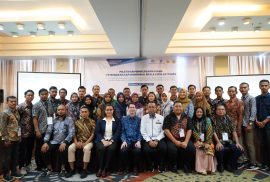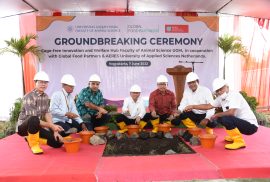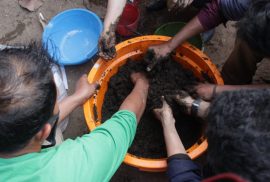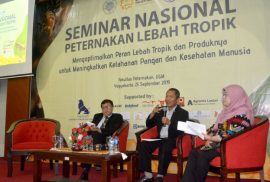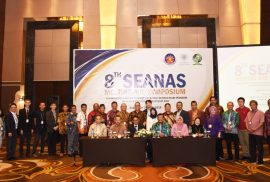The Indonesia Australia Red Meat and Cattle Partnership is again holding a “Small Scale Commercial Cattle Farming Business Management Training” in collaboration with the Faculty of Animal Science Universitas Gadjah Mada and the Faculty of Animal Science, Hasanuddin University. This training was held in Makassar on 24 – 29 July 2023. The target participants in this training were farmers in Kalimantan and Sulawesi with a minimum number of private ownerships of 10 head of cattle and who were commercially oriented.
Press Release
First of its kind in Indonesia and Southeast Asia , Hub consists of an international training centre & model farm for cage-free egg production and management
A Groundbreaking Ceremony was held on 7 June in Kalijeruk, Yogyakarta, Indonesia to celebrate the commencement of the building of the Hub. As the 7th largest egg producer in the world, Indonesian farmers are seeking support in cage-free production, in order to stay competitive and meet the increasing demand for cage-free eggs in Indonesia and across Asia. GFP’s recent producer needs assessment survey found that egg farmers in Indonesia need support from experts on how to transition from conventional cage systems to cage-free production, with higher levels of welfare. The Hub will allow egg farmers to achieve this long-term success, sustainability, and profitability in cage-free egg production.
TRIBUNJOGJA.COM – So far, most Indonesian farmers are still traditionally raising cattle, where the methane gas produced by livestock is not well managed so it pollutes the environment.
Methane gas itself is one of the causes of global warming which results in climate change, drought, and forest fires.
Also, when methane gas production is too high it has an impact on decreasing livestock productivity.
Seeing this, the Faculty of Animal Science UGM developed an environmentally friendly feed supplement that was able to reduce the production of methane gas produced by ruminants such as cattle, goats, and sheep.
Jogjainside.com, Yogyakarta – Honeybees have been known to have enormous benefits for human health.
According to research the content of bee sting poison and propolis produced by bees can be used for HIV/AIDS, tuberculosis, and malaria therapy.
However, the current forest fires in Kalimantan and Sumatra have caused honey production in Indonesia to decline.
This decline in production was revealed in the Beekeeping National Seminar “Optimizing the Role of Tropical Bees and Its Products to Improve Food Security and Public Health”.
RADAR JOGJA – Faculty of Animal Science (FAS) UGM held various activities to celebrate its 50th anniversary. On November 9, FAS UGM will hold alumni gathering and MURI record-breaking by eating satay klatak on November 10, targeting 1969 participants, according to the year of birth of the faculty. Along with the International Seminar on Tropical Animal Production (ISTAP), the Faculty of Animal Science UGM also hosted a meeting between leaders of higher education in animal science study programs in the ASEAN region known as the SEANAS (South East Asia Network for Animal Science) forum.

